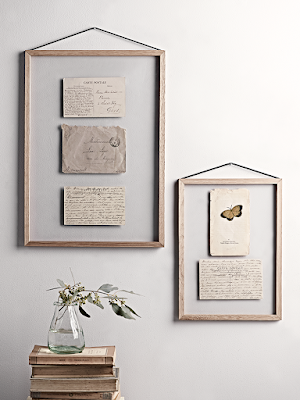Things to
think about
Do not drill directly above or below light switches or plug
sockets as cables conventionally run vertically up from light switches and down
from sockets.
A cable, pipe and stud detector is an essential tool to help
locate timber studs and identify the locations of electricity cables and water
pipes below the wall surface.
Consider what type of wall you are working with – for example, a
solid wall or a hollow stud wall – and use appropriate fixings for the weight
of the picture or mirror.
Lightweight pictures and mirrors can be hung from a pin picture
hook hammered into the wall, but check first that the plaster is sound. You
want the pin hook to go cleanly into the plaster and not cause it to flake
away.
Masonry walls will accept some picture hooks and masonry nails.
However, for heavier pictures, a screw fixing is required with the appropriate
size wall plug, to ensure that the weight of the picture can be supported. A
power drill or drill/driver will be required to make the necessary pilot holes.
With stud (hollow) walls, plasterboard is attached to vertical
timbers called studs and horizontal timbers called noggings. Locate a timber to
screw into and you have a solid fixing for the nail or screw. To hang heavy
pictures on a stud wall you must find fixing positions directly into the studs.
Mirror adhesive or selfadhesive mirror pads can be used to stick
lightweight mirrors to a wall surface. Do not attempt this with anything but
the lightest of mirrors.
Using two people to hang a picture is best, as one can hold it
in place while the other can stand back and make judgements on height and
position.
Picture wire is better than string for hanging pictures, as the
wire will not stretch or wear through.
Lighting is important to show off pictures to their full
potential. Consider having picture lights fitted, above a picture, or
directional spotlights that may be tilted and positioned as required to
highlight a special picture.
An impression of space can be created by hanging large mirrors
in small rooms. They can also help to bring more light into a dark room, by
reflecting the natural light.
Equipment you
may need
Cable,
pipe and stud detector
Safety
glasses
Spirit
level
Tape
measure
Screwdriver
Pencil
Carpenter's
awl (bradawl)
Hammer
Hang lightweight pictures and mirrors
Picture
hanging kit (if you have lots
of pictures to hang)
Picture
hooks
Hang heavier pictures and mirrors
Power
drill (for masonry walls)
Drill/driver
and bits
Screws
Spiral/self-drilling
wall plugs (for stud walls)
Hollow
wall anchors (for stud walls)
Hang unframed mirrors
Mirror screws (for mirrors with predrilled fixing holes)
Mirror brackets (for mirrors with no predrilled fixing
holes)


No comments:
Post a Comment